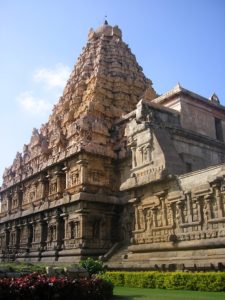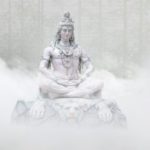What is Advaita Vedanta?
Upanishads are the ancient fundamentals of the Hindu religion. Advaita is one of many interpretations of these fundamentals. Advaita is the most influential of Hindu Philosophies; it’s sometimes referred to as the Yoga of Knowledge. Its core aphorism is that only one thing exists in the universe; everything else is fallacious. This belief system is also called nonduality or monism both implying that everything can be attributed to a single concept.
What are the beliefs associated with Advaita Vedanta?
The beliefs of the religion are based on the idea that the innermost part of your conscious the only part of you that can see or feel anything. Hindus refer to this awareness as Atmana counterpart to the soul associated with Western Philosophy. Atmans as a whole underline the ultimate reality of the universe this is called Brahman. This concept is similar to how Western Religions characterize God. The difference between God and Brahman, or the “true” inner person, is that Brahman does not take superhuman form. Rather, Brahman is the source of everything it’s the universe in its entirety. In other words, your inner-self, or your Brahman, IS God. Atman is to Brahman as Soul is to God.
The difference between Advaita Vedanta and other derivations of Upanishads is that Advaita proclaims that despite the millions of earthly inhabitants, there is only one Brahmanwe’re all one thing. Similarly, followers assert that Brahman is the only real thing in the universe; everything else, from cars to eyelashes, is an illusion. These surreal things are called Maya. Even Maya is considered illusory because of what is describes. The ultimate belief is that you are not real. Your legs, eyes, brain, psyche one of it REALLY exists. The only part of you that matters is your Brahman, which underlies the entire world.
Why is this belief system important?
Advaita Vedanta encourages self-realization. By practicing it, you come closer to a state of pure enlightenment the Yoga of Knowledge. The principal of Yoga, whether it be psychological or physical is to enlighten the individual.
 This concept can be misleading. While the traditional path to self-awareness involves soul-searching, Advaita Vedanta does not. When we try to tap into our inner beings, we try to become aware of our true thoughts, dreams, feelings, etc. Advaita teaches us that our supposed “awareness” is the superficial and illusory product of a psyche that doesn’t exist. Advaita teaches us that true enlightenment exists because our Atman is enlightened. And because our Atman’s are the only REAL, feeling thing, we’re not aware that the Atman is enlightened.
This concept can be misleading. While the traditional path to self-awareness involves soul-searching, Advaita Vedanta does not. When we try to tap into our inner beings, we try to become aware of our true thoughts, dreams, feelings, etc. Advaita teaches us that our supposed “awareness” is the superficial and illusory product of a psyche that doesn’t exist. Advaita teaches us that true enlightenment exists because our Atman is enlightened. And because our Atman’s are the only REAL, feeling thing, we’re not aware that the Atman is enlightened.
Advaita Vedanta’s objective is to liberate the believer through total disregard for individuality. It seeks to alleviate the stress of self-loathing physical awareness. Attempting to achieve this pure state of being is very difficult for an ordinary human being. The notion that, in order to be truly free and devoted to God, we must abandon all attachment to our physical and emotional selves is profound. That being true, few circles practice Advaita Vedanta. However, in addition to traditional Indian monasteries, the number of believers is growing. This could be attributed in part to the universe’s increasing desire to become self-aware and spiritually liberated.
Where can I learn more about Advaita Vedanta?
Because Advaita Vedanta is one of many derivations of the Hindu belief system, focusing on Upanishads should provide a wide array of information about these religions. A plethora of literature and Web-based forums exist and would be of great help.






